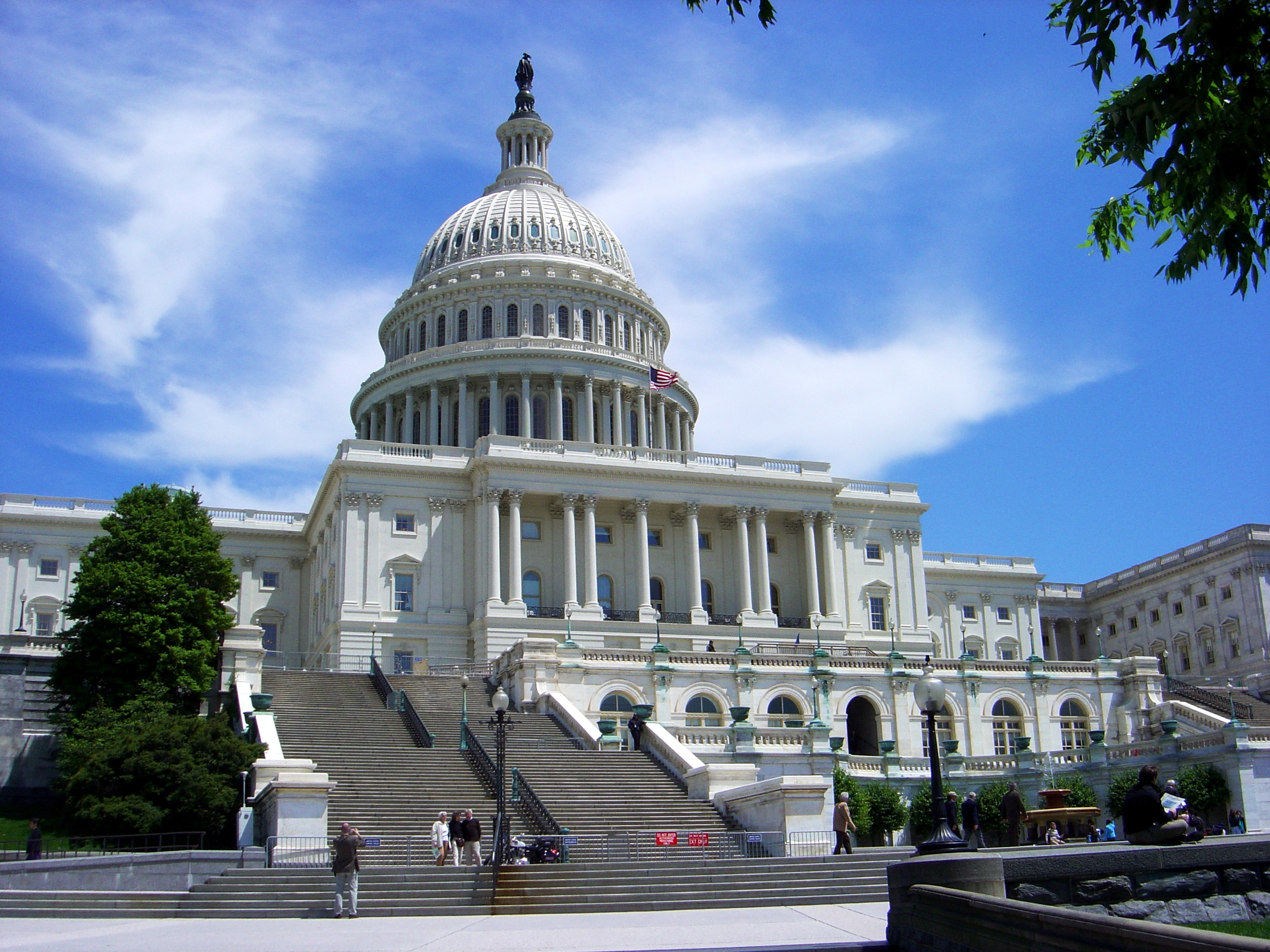
Source: Uscapitolindaylight, Kmccoy, Wikimedia
In the last section, you learned that family titles are often capitalized but not always. This is only one exception in a language known for its exceptions.
Capital can be defined as “an uppercase letter” or as “money you have saved.” In either meaning capital is a common noun and not capitalized. But Capitol–spelled with an o–should be capitalized when it refers to a specific building such as the domed building in Washington, D.C., or the magnificent building in Austin.
To review proper nouns and continue our discussion of some exceptions to the rule, listen to Grammar Girl Mignon Fogarty’s podcast, “Capitalizing Proper Nouns.”
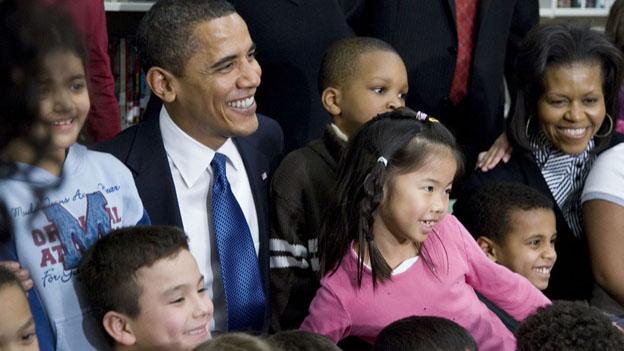
Source: Barack & Michelle Obama at Washington DC public charter school
2-3-09, Joyce N. Boghosian
Sometimes the president gets uppercase treatment, and sometimes he doesn’t, but the First Lady is always capitalized because it is an honorary title. If the title comes before the name, it’s capitalized, and if it follows the name, it’s not. Read the following examples:
–President Barak Obama makes time for basketball.
–We invited Barak Obama, president of the United States, to shoot some hoops.
–Spain’s King Juan Carlos goes on safari to Africa to hunt elephants.
–Juan Carlos, king of Spain, vacations during a time of economic downturn.
Some of these exceptions could trip you up if you are not made aware of them.
- Capitalize the holidays but not seasons: Hanukkah is in the winter. Easter is in the spring.
- Capitalize regions but not directions: We are driving south to our home in the South.
- Capitalize eras but not centuries: The Paleolithic era occurred before the Middle Ages and both preceded the twentieth century.
- Capitalize specific courses in school but not the name of a subject unless it is used as a proper noun: German, French, English and Algebra I are capitalized but not science or algebra.
- Capitalize YouTube, Facebook, and Twitter because they are specific sites on the Internet. Also capitalize Internet because it is seen as a specific, giant network of computers while a website, lowercase, is only one small part of this giant network. When referring to the Internet, most style guides capitalize Web, but to be sure, you should check the style guide that your teacher has recommended for your class.
- Capitalize the planets of the solar system, like Mars, Jupiter, and Saturn. However, style guides vary on the rule for capitalizing "earth." Often you will see it capitalized when it's being used in scientific terms, as in: “The Earth’s orbit takes approximately 365 days” but not capitalized in "peace on earth." To be safe, check the style guide that your teacher has recommended for your class.
- Capitalize Atlantic Ocean but not transatlantic; similarly, capitalize Constitution, but not constitutional.
- Capitalize degrees like MBA and PhD, acronyms and initialisms like MADD and FBI but not scuba (Self-Contained Underwater Breathing Apparatus) or radar (Radio Detecting And Ranging) which are so commonly used that they are now treated as ordinary words.
Eponyms, or words named after people, are also not capitalized. The teddy bear was named for President Theodore Roosevelt, whose nickname was Teddy, because of Clifford Berryman’s famous cartoon.
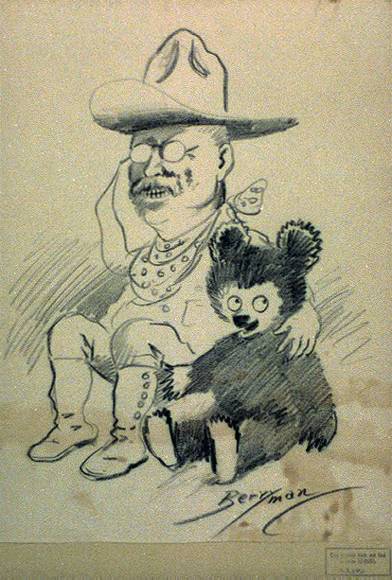
Source: Roosevelt as a Rough Rider with
a bear cub, Clifford Berryman, Library of
Congress
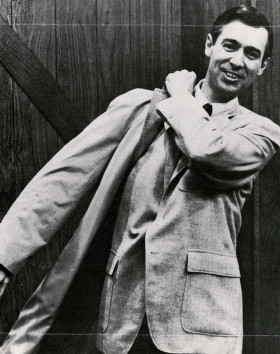
Source: Fred Rogers, KUHT, Wikimedia
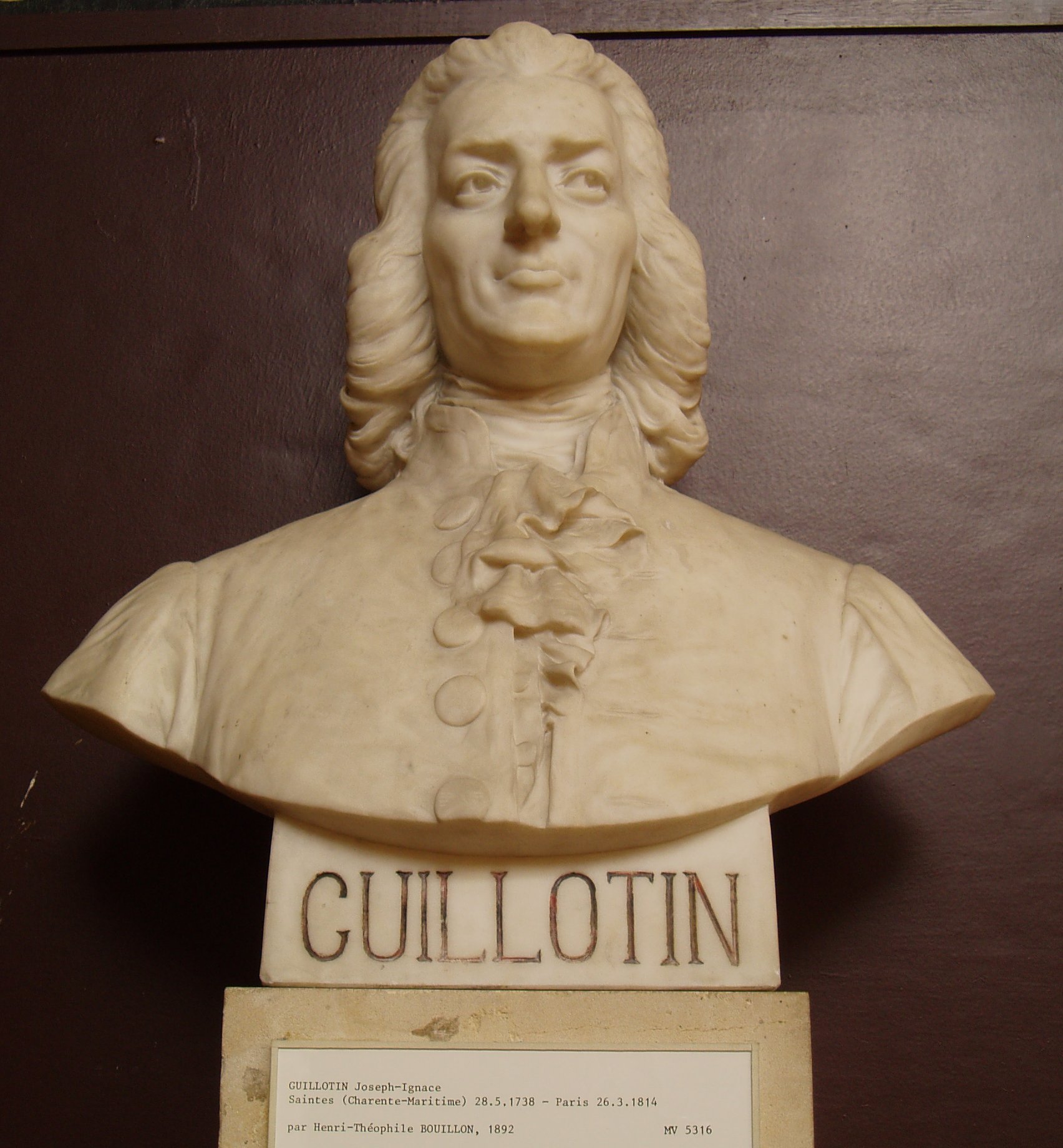
Source: Joseph Ignace Guillotin, Wikimedia
We “cap” the Earl of Sandwich but not the lunch item he originated. We cap the Earl of Cardigan who wore a cardigan sweater way before Mr. Rogers. We cap the name of Joseph-Ignace Guillotin, who took part in the French Revolution, but we “decap” guillotine, the instrument of execution that bears his name. The same holds true for Captain William Lynch, whose “lynch trials” of 1776 in Virginia are still a part of our language.
Now read about Clarence, the second son of the “Married Couple” in George Ade’s fable “The Fable of the Parents Who Tinkered with the Offspring.” Answer the capitalization questions following the passage.
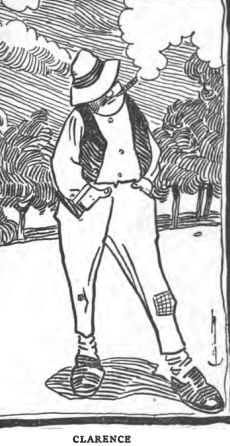
Source: Clarence, George Ade,
Project Gutenburg
Seeing that the Home Training Experiment had been a Failure in the case of Joseph, the Parents decided to give Clarence a large Measure of Liberty, that he might become Acquainted with the Snares and Temptations of the World while he was Young, and thus be Prepared to side-step the Pitfalls when he was Older. They sent him to the Public Schools; they allowed him to roam at large with other Kids, and stay out at Nights.
Clarence stood in with the Toughest Push in Town, and thus became acquainted with the Snares and Temptations of the World. He learned to Chew Tobacco and Spit through his Teeth, shoot dice and Rush the Can.
When his Father suggested that he enter some Business House, and become a Credit to the Family, he growled like a Boston Terrier, and told his Father to go Chase Himself.
At present, he is working the Shells with a Circus.
MORAL: It all depends.
Now answer some questions about the second half of George Ade’s fable and determine the correct capitalization for several words.

1. “When his Father suggested that he enter some Business House, and become a Credit to the Family, he growled like a Boston Terrier, and told his Father to go Chase Himself.” Which statement is true about this sentence?
by a possessive pronoun and indicates a relationship.
2. “When his Father suggested that he enter some Business House, and become a Credit to the Family, he growled like a Boston Terrier, and told his Father to go Chase Himself.” Which statement is true about this sentence?
proper noun; “terrier” should be lowercased because it is a common noun.
“terrier” should be capitalized because it is proper noun.